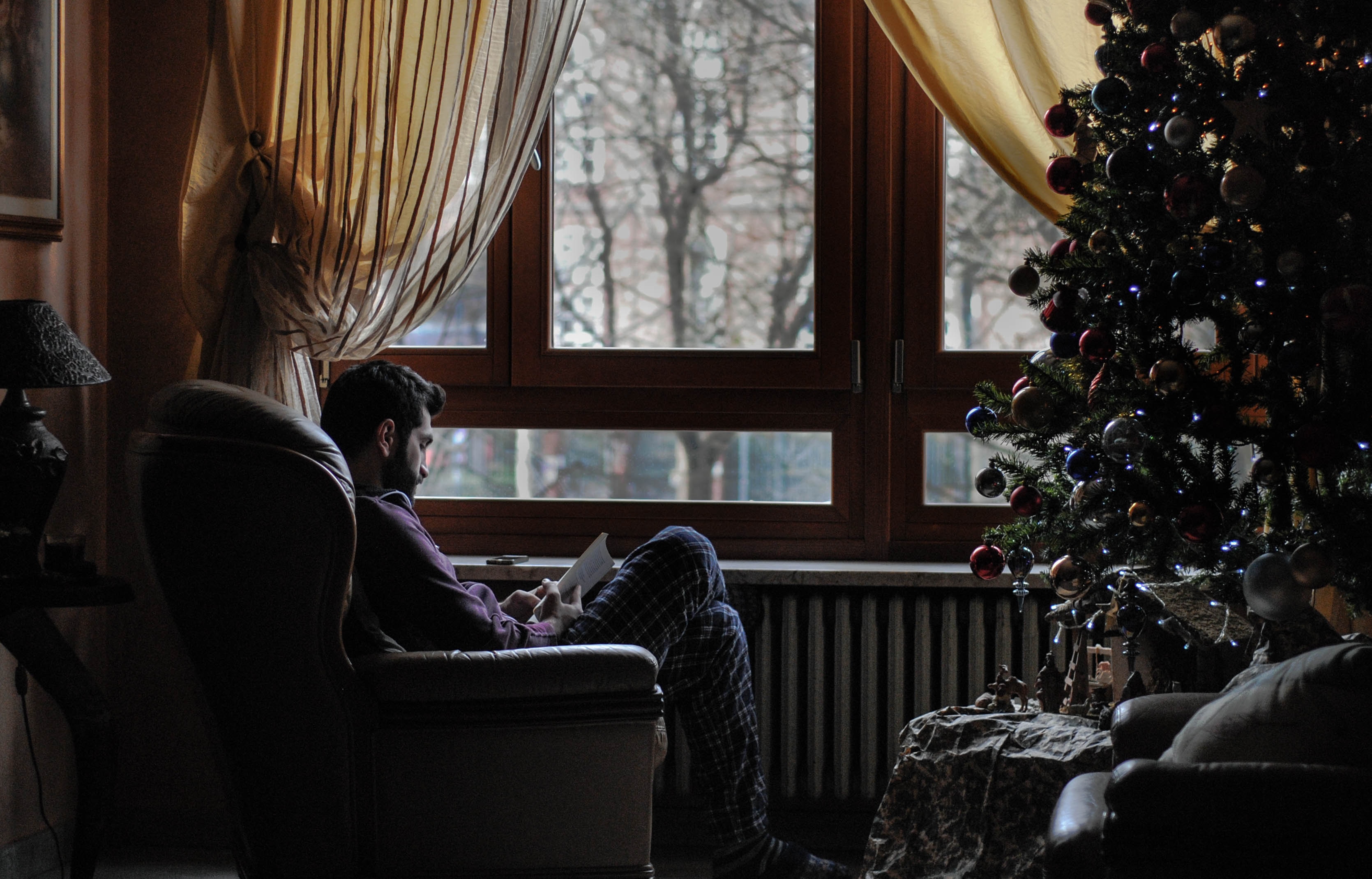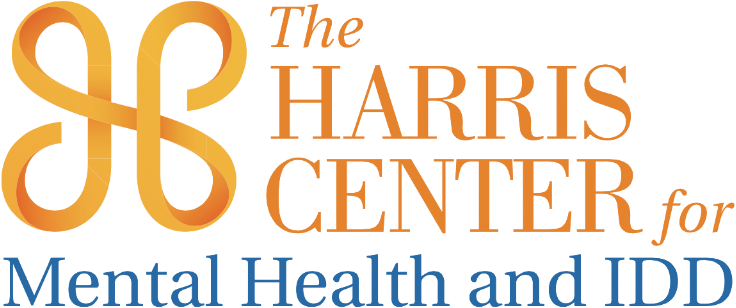
Finding Connection in the Midst of Holiday Loneliness
The Harris Center for Mental Health & IDD
As the holidays roll in, for many it can be a time of laughter and joy, with family reunions, clinking of glasses, traditional foods, twinkling lights, and festive decorations; but it’s not as joyous for everyone at all times. The holiday season can also be a reminder of what, or who, is missing. It's hard when the world seems to be celebrating, and you're trying to find your footing in a state of loneliness that the holiday cheer often can’t quite reach.
This is the part of the holiday season that doesn't make it onto greeting cards. Loneliness this time of year isn't just about being alone; it's a deeper sense of feeling disconnected, even when surrounded by others. It's not just a fleeting feeling—it's a significant mental health issue that deserves attention and care.
When the holiday spirit has dimmed, Donielle Price, Crisis Line Program Manager at The Harris Center for Mental Health & IDD, is just one of the voices lending an ear to offer the kind of support that can make a difference. From experience with the Crisis Hotline, Donielle has found that a simple conversation can be the first step in bridging the gap between isolation and community.
“A big reminder I say to everyone on our Crisis Line team is to remember to help people understand what they are feeling is normal.” says Donielle. “You’re not alone. There are a lot of people who can support you. A lot of people can relate and are there to help them.”
What is Loneliness?
Loneliness is more than the occasional bout of solitude; it's a persistent, deep-seated sense of disconnection that can have profound implications for mental and emotional well-being. It’s not just about being physically alone; it’s about feeling that your social needs are not being met—a sense that no matter how many people are around, or how festive the atmosphere, you're somehow on the outside looking in.
The holiday season has a way of turning up the volume on loneliness. It's a time when social bonds are highlighted, often idealized in movies and songs, which can sharpen the pain for those who feel out of step with the celebratory mood. When people are expected to be merry and bright, those dealing with loneliness can feel their isolation even more acutely.
Recognizing and acknowledging this loneliness is crucial. It’s easy to brush off these feelings as just seasonal sadness or a temporary slump, but it’s important to take them seriously. Addressing loneliness isn't just about lifting someone's spirits in the short term; it's about understanding the deeper issues at play and connecting individuals to support that can help them navigate their feelings and find a sense of belonging. It’s about validating their experience and providing pathways that lead from the shadows of isolation into the warmth of community connection.
Coping Strategies
There are many ways to help light the way to a more connected, fulfilling time during the holidays. These include:
Staying Meaningfully Engaged. One of the most effective ways to counter loneliness is to stay engaged in activities that are meaningful. This could mean diving into a beloved hobby, starting a new project, or even learning something new. The key is to find activities that resonate on a personal level, offering not just a distraction, but a genuine source of joy and fulfillment.
Getting Involved in the Community. Community involvement can serve as a powerful antidote to feelings of isolation. This might involve participating in local events, volunteering for a cause that’s close to the heart, or joining a club or group that shares similar interests. Being part of community efforts provides a sense of being part of something larger than oneself, which can significantly diminish feelings of loneliness.
Developing New Routines. Establishing new routines can create a structure that provides comfort and predictability. This might include setting specific times for exercise, joining a weekly class, or scheduling regular catch-ups with friends or family, even if it’s just a virtual get-together. New routines can lead to new traditions that can be looked forward to each year.
Seeking Professional Help. Sometimes, the best strategy is to seek the help of a professional. This could mean talking to a counselor or therapist who can offer strategies and support to manage feelings of loneliness. Professional help can also come in the form of peer groups, where sharing experiences with others who understand can be incredibly comforting.
The Harris Center for Mental Health and IDD is available to help those navigating through their loneliness all year long, 24/7, and can help guide them back to community and connection. It offers a comprehensive range of services tailored to meet the nuanced needs of those dealing with mental health challenges. This includes one-on-one counseling and support groups.
Perhaps most critical during the holidays are The Harris Center’s 24-hour crisis lines. These lines are a lifeline for many, a direct connection to immediate support. The main support line 713-970-7000 and the 988 suicide and crisis lifeline are staffed round-the-clock with crisis counselors who are trained to offer help in moments of need—whether that’s a tough night or a tough season.
“Our team is there not to critique or minimize anyone's feelings but to listen with empathy, validate their experiences, and provide support that respects the individual's dignity and worth,” says Donielle. “This approach is foundational to building trust and ensuring that those reaching out feel heard, understood, and, most importantly, not alone.”




